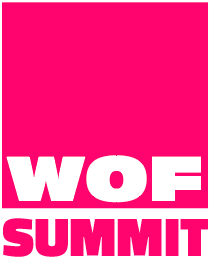WOF Interview with Howard Lamb, Port of Rotterdam Authority N.V. – Southern DACH Region
Howard Lamb is a seasoned executive with over three decades of experience in logistics and transportation. Currently, he serves as the Port of Rotterdam’s Representative for Southern DACH Region. A dual Dutch and British national, Howard holds a B.A. in German and Russian from King’s College, University of London, and speaks multiple languages, including English, German, Dutch, and Russian. Howard’s career highlights also include a top position as a CEO at MOL Austria Handels in Vienna or as a Vice President at Maersk Logistics Northeast Asia in Tokyo. His commitment to health, safety, environment, and sustainability, along with mentoring emerging talent, has been a hallmark of his career. His extensive geographical experience includes roles in Benelux, DACH, Hungary, Russia, Asia, and the UK.
What role does the Port of Rotterdam play in global supply chains, and how does it ensure reliability and resilience?
Port of Rotterdam plays a critical role as a hub for transportation of semi finished and finished products as well as raw materials in support of European industry and commerce. It is a major player also in the supply of energy to large parts of Europe.
How does the port collaborate with international freight forwarders to optimize logistics and supply chain management?
The Port of Rotterdam engages with all stakeholders in the supply chain to facilitate optimal flow of information and cargo through both digital and personal networks. Portbase is our platform enabling all stakeholders in the supply chain to share visibility on the status of their shipment.
What are the biggest challenges currently facing the Port of Rotterdam, and how is the port addressing
Conflicts in Ukraine and Middle East as well as related sanctions are impacting the business of the port significantly. Global political tension, energy price uncertainty, increasing number of business bankruptcies, low consumer confidence, economic downturn are all playing a role in constraining the performance of the port. Meanwhile an increased focus on energy transition and sustainability is ensuring that we commit ourselves to ambitious goals to show leadership within the global port community.
In what way (if any) have the recent disruptions in the Red Sea impacted the volumes or operation? What do you think is the main lesson learned by this situation for the marine industry?
We have seen increased volatility and congestion as a result of the Red Sea disruptions, as many ships reroute around the Cape of Good Hope. It provides confirmation to the shipping and forwarding community of the need to be agile, to achieve resilience by ensuring that one always has a plan B and a plan C.
What opportunities do you see for the Port of Rotterdam in the next five years, especially in the context of global trade dynamics?
The Port of Rotterdam is working on major opportunities to become a hub for production and import of hydrogen, to be a multi fuel bunker hub, to achieve sustainability goals, to lead the way in terms of digitization. We are at the same time building our cargo handling capacity to ensure that we accommodate increased consumer demand, with container throughput capacity to grow by a further 8 million TEU in the coming 10 years, adding roughly 50% to existing capacity.
You will be attending the next WOF Summit in Vienna. What are your expectations from this gathering
I expect we will meet an exciting mix of professionals from all parts of the supply chain and energy worlds. I am looking forward to a top networking event.
The Port of Rotterdam is the largest container port in Europe. Its strategic location makes it a vital hub for international trade and logistics. The Port Authority is able and willing to make an impact and so it is focusing on accelerating sustainability in the port and it is a partner in the digitalisation of the port and logistics chains. The Port Authority’s core tasks are the sustainable development, management and operation of the port, the maintenance of the smooth and safe handling of shipping and supporting the future-resilience of the port of Rotterdam.


